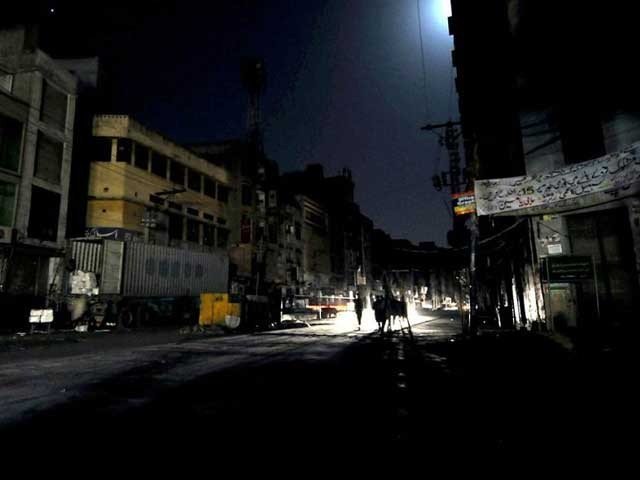
Prime Minister Shehbaz Sharif has stepped in to save Karachi from the looming load-shedding.
Cabinet members asked PM Sharif in a recent meeting to resolve a payment dispute between Sui Southern Gas Company (SSGC) and K-Electric, which may lead to power outages.
Pakistan’s financial capital Karachi was poised to face additional load-shedding of three to five hours as the city’s sole power supplier K-Electric owed SSGC Rs9 billion in outstanding dues for May and June. It has made partial payment of Rs3.2 billion in June.
Alluding to the row between the power utility and the federal government, the cabinet members suggested that the issue should be resolved on priority as Karachi, being the commercial hub, could not afford electricity outages for longer durations.
PM Sharif assured the cabinet members that the federal government was willing to meet its commitments. Finance and revenue minister informed the meeting that negotiations were being held with K-Electric and the matter would soon be resolved amicably.
According to sources, SSGC may not continue gas supply without getting the full settlement of dues. The gas utility maintains that it reserves the right to curtail supplies over delay in payments.
The city is already experiencing 8-10 hours of load-shedding, but the situation is likely to turn worse as SSGC has initiated gradual reduction in supplies to the tune of 10 million cubic feet per day (mmcfd).
At present, the gas supply is estimated at 85 mmcfd, down from 100 mmcfd at the start of May and well below the 200 mmcfd at the same time last year.
The looming threat was reflected in two letters written separately by K-Electric to Finance Minister Miftah Ismail.
K-Electric, in these and previous letters, highlighted that it was facing cash flow constraints, making it “difficult” to make timely and full payments to fuel suppliers.
The power utility raised concerns about the financial issues and called for the release of at least Rs25 billion from the tariff differential claims that were piling up at the government’s end.
K-Electric argued that due to the continuous accumulation of the tariff differential subsidy (TDS) claims, the company’s financial position had become strained, and its borrowing from financial institutions over the years had reached an unsustainable level.
It also highlighted that the problem had been compounded by the supply of imported fuel such as re-gasified liquefied natural gas (RLNG), which was five times expensive than the locally produced natural gas.
The extraordinary high fuel costs were adversely affecting K-Electric’s ability to continue purchasing fuel, the letter said.
“We reiterate our request to release at least Rs25 billion out of the TDS receivables directly to K-E to enable it to keep operations afloat and continue making timely payments to SSGC, PLL (Pakistan LNG Limited), and PSO (Pakistan State Oil) for RLNG/ indigenous gas and furnace oil,” wrote the CEO of the power utility in a letter sent to the Power Division on May 17.
In a recent statement, SSGC Managing Director Imran Maniar said, “K-E default is causing a delay in SSGC ability to make timely payments to SNGPL against RLNG retention, which will ultimately hamper the LNG supply chain and may add to the situation of an international default.”
Around 700 megawatts of electricity in the K-Electric system is dependent solely on gas supply by SSGC. Owing to the unavailability of gas, 200MW of power supply has already been compromised and further reduction in gas supply will worsen the situation.
Published in The Express Tribune, June 14th, 2022.
Like Business on Facebook, follow @TribuneBiz on Twitter to stay informed and join in the conversation.


1723278472-0/BeFunky-collage-(4)1723278472-0-165x106.webp)


1719564405-0/BeFunky-collage-(19)1719564405-0-165x106.webp)

1732486769-0/image-(8)1732486769-0-270x192.webp)










COMMENTS (1)
Comments are moderated and generally will be posted if they are on-topic and not abusive.
For more information, please see our Comments FAQ